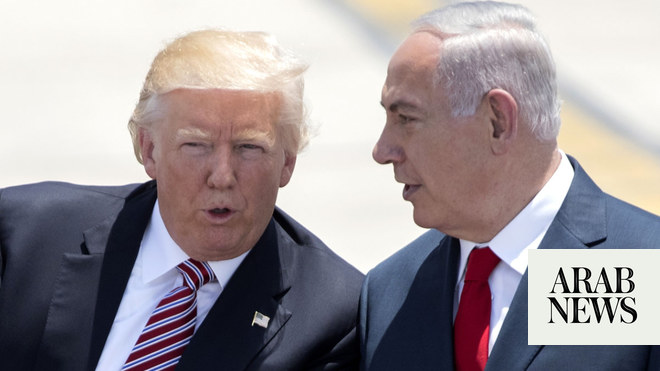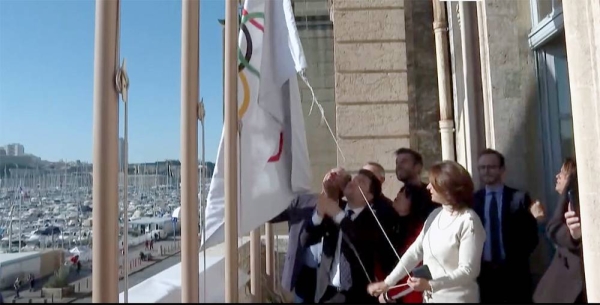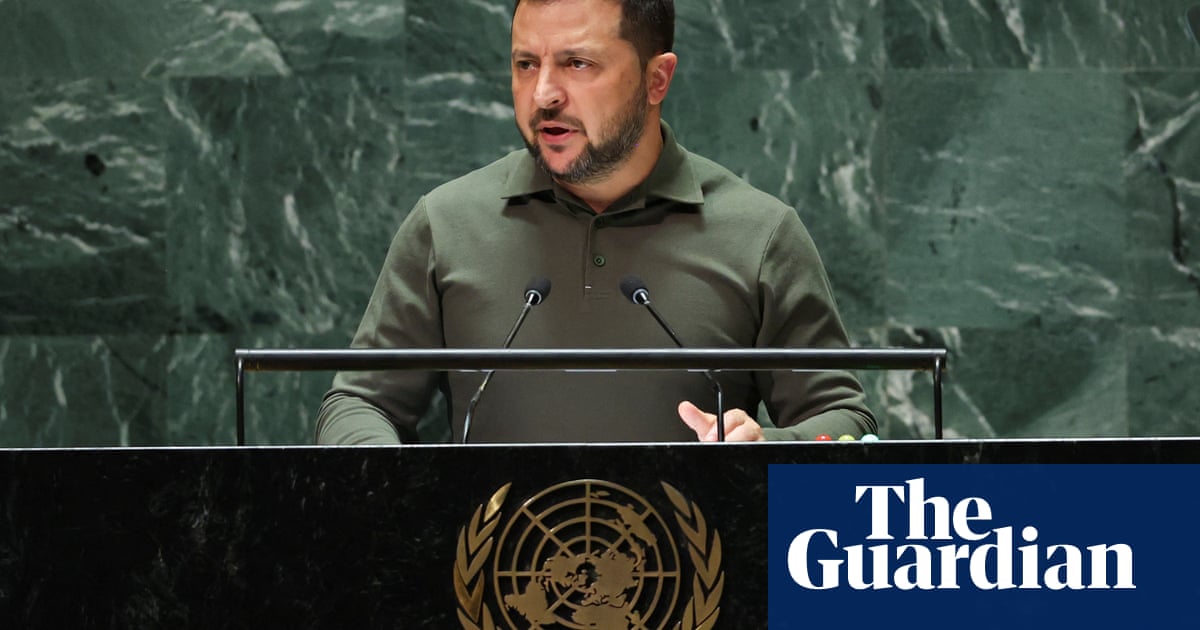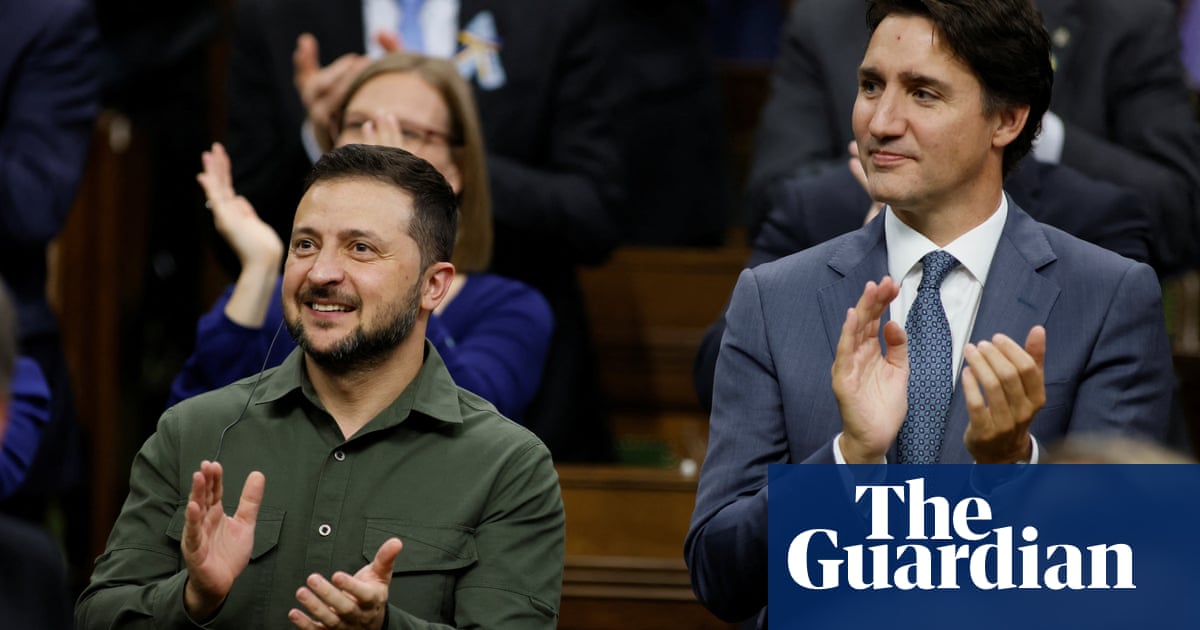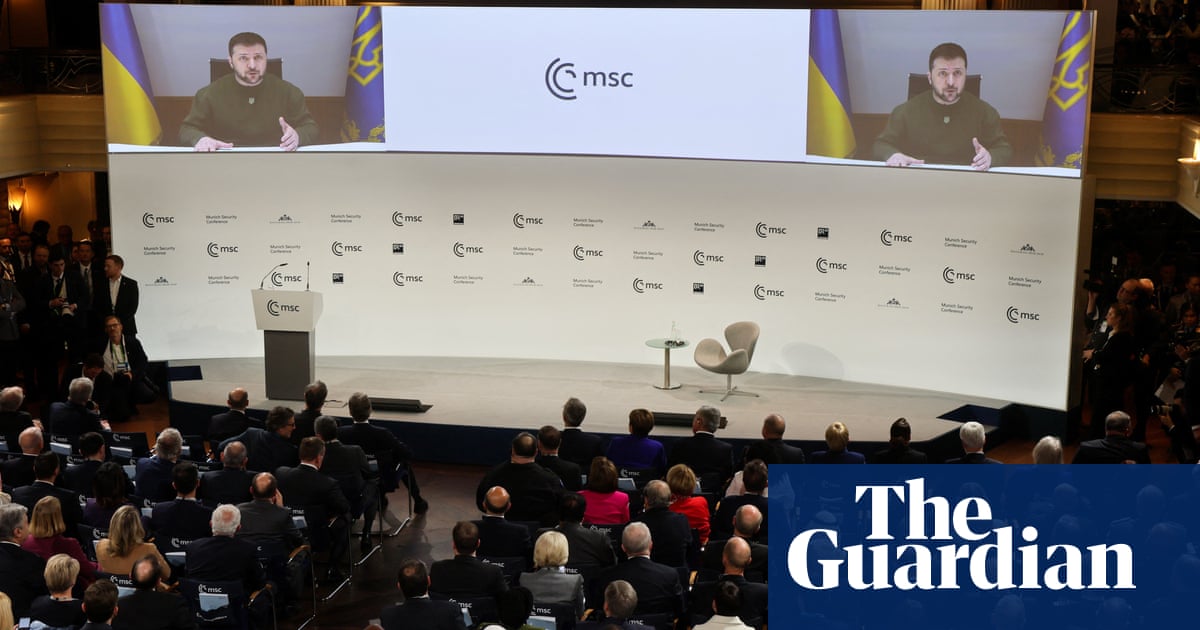
The west needs to hurry up its support for Ukraine as Vladimir Putin will gain a military advantage unless arms deliveries and further sanctions arrive soon, Volodymyr Zelenskiy has said in a video address to world leaders at a security conference in Munich in the face of mounting fears that Russia is planning a new offensive.
“We need to hurry up. We need speed – speed of our agreements, speed of our delivery … speed of decisions to limit Russian potential,” the Ukrainian president said. “There is no alternative to speed because it is speed that life depends on.”
He added: “Delay has always been and still is a mistake”.
His address came just days before the anniversary on 24 February of Moscow sending its forces into the country and unleashing the biggest war in Europe since the 1940s.
Zelenskiy accepted Russia was trying to mount an offensive, mainly in the south, partly by attacking civilian and energy infrastructure. Meanwhile, he said, neighbouring Belarus would make a mistake of historic proportions if it joined in the Russian offensive, and claimed surveys showed 80% of the country did not wish to join the war.
Trying to sound an optimistic note and taking up the theme of the conference, “David on the Dnipro”, Zelenskiy said his country had the courage to defeat Goliath with a slingshot. But for this to succeed, he said, the slingshot had to become stronger and faster. “Goliath has already started to lose. Goliath will definitely fall this year,” he said.
He said since he last spoke to the MSC he had proven that his country could regain lost territory, including 1,000 cities and villages, but took a swipe at the western countries that had only sent weapons to Ukraine after it had been invaded by Russia. He warned that possible consequences of delay could be a Russian invasion of Moldova, or Russia’s ally Iran receiving enriched uranium.
Speaking immediately afterwards, however, the German chancellor, Olaf Scholz, gave Zelenskiy an indirect rebuff, saying caution was better than hasty decisions and unity was better than going it alone. Scholz said Europe was in uncharted territory and there was “no blueprint for confronting a nuclear power waging an imperialist war of aggression here on European soil”. That made it vital to avoid an unintended escalation, requiring carefully weighed decisions.
More than 100 world leaders and diplomats, including the US vice-president, Kamala Harris, are attending the Munich security conference, and from the opening speeches it was clear Europe is now expecting a prolonged conflict requiring further expense and sanctions.
Scholz said he was the biggest supplier of weapons in continental Europe, and turned the tables on some of his critics, pointing out he had provided German Leopard tanks, but few others had done so. “All those who can supply main battle tanks should really do so,” he said.
The French president, Emmanuel Macron, said France was ready for a prolonged conflict and that “we must collectively be credible in our ability to last in this effort”. He urged allies to support Ukraine to launch a counteroffensive, “which alone can allow credible negotiations, determined by Ukraine, its authorities and its people”.
However, he returned to a theme that has previously alienated some supporters of Ukraine, saying: “This is a war that is a consequence of the fact that no one properly digested the end of the cold war – neither Europe nor Russia.”
Saying he was not justifying Russia’s illegal actions, he said the west had assumed Russia could change overnight, while the deep reason for its aggression was resentment of what had happened to the Soviet Union and its obsession with the end of empire.
Macron admitted the world’s response to war showed the need to rebalance the the global order and make it more inclusive. “I am struck by how we have lost the trust of the global south he said. He advised Russia to move away from neo-imperialism. He added: “No one can change geography. Russia is part of Europe. No one can solve this dilemma. There is no long-term peace in our continent until this problem is solved reasonably.”
The Munich security conference has had a tradition going back decades of inviting senior leaders from states hostile, or ambivalent, towards the west, but has this year taken the unusual decision to exclude any representatives from Iran or Russia. Sergei Lavrov, Russia’s foreign minister, responded to his exclusion by setting a Moscow foreign policy goal of ending what he said was the west’s diplomatic monopoly.
The Kremlin on Friday accused the US of inciting Ukraine to escalate the war by condoning attacks on Crimea, saying Washington was now directly involved in the conflict because “crazy people” had dreams of defeating Russia.
The Chinese foreign minister, Wang Yi, is due to give an address at the conference and his speech will be watched closely to see how far he is willing to go, in distancing himself from Russia’s invasion, and in seeking out a new, post-Covid trading relationship with the west. He is expected to meet the US secretary of state, Antony Blinken, who is likely to urge him to do more to criticise the invasion of Ukrainian sovereign territory. A planned trip by Blinken to Beijing was cancelled earlier this month over the Chinese spy balloon controversy.
The world leaders at Munich will go through a lightning round of bilateral meetings, including talks between Harris and the British prime minister, Rishi Sunak. It is the second year in a row that the US vice-president has been given the chance to showcase her international diplomatic skills at the Munich conference, which used to be a natural venue for the president, Joe Biden, when he was chair of the Senate foreign affairs committee. European leaders will be using the weekend to speak to the newly elected Republican leadership of the House of Representatives.
It is expected that G7 foreign ministers will also meet on the sidelines of the conference on Saturday to discuss next steps in Ukraine and how to address the future of the Iran nuclear deal. Biden is due in Poland on Monday.




